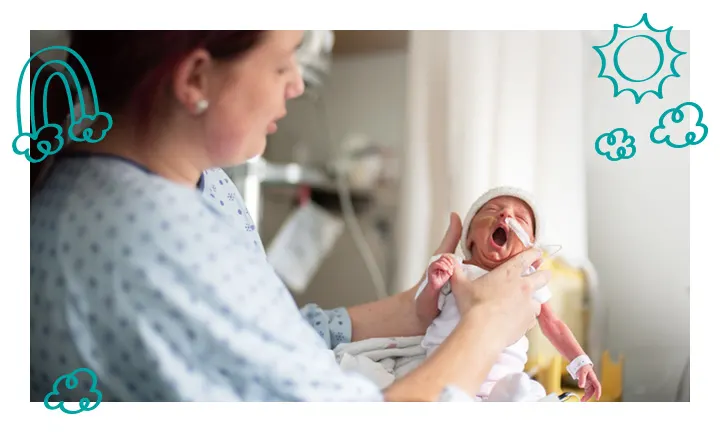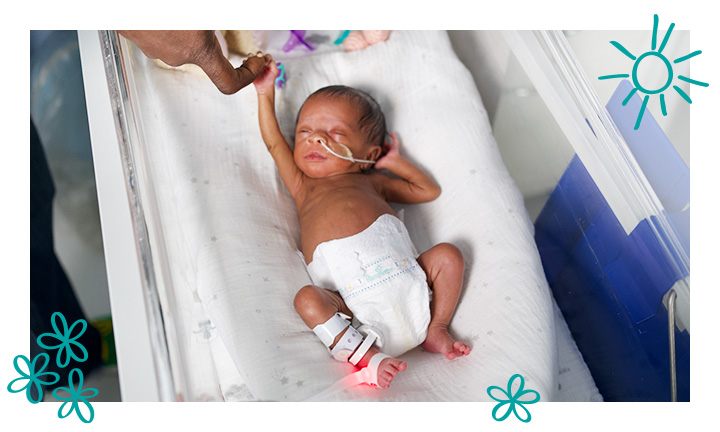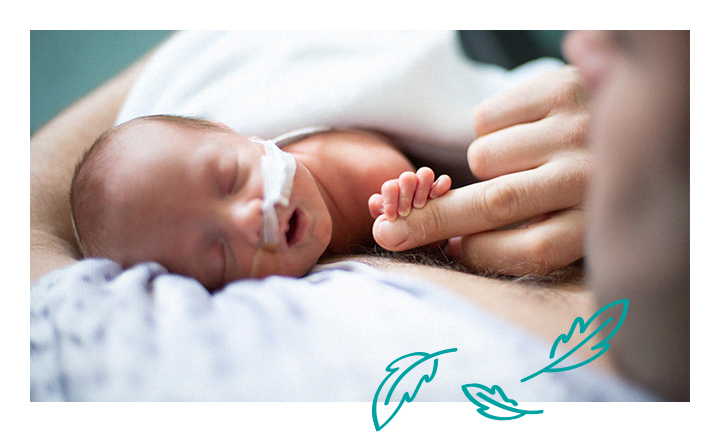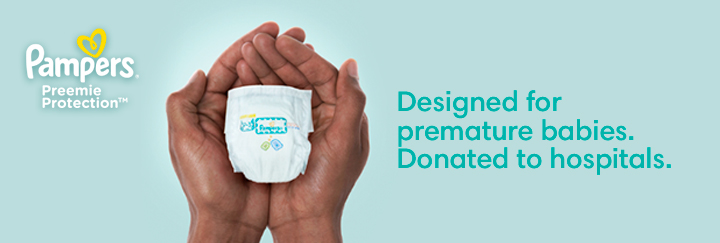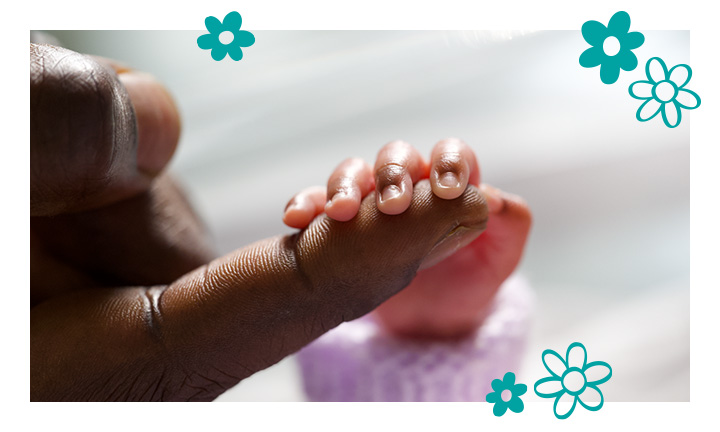
How to Cope with the Arrival of a Premature Baby
Having a premature baby is one of the most challenging experiences a parent can face. It can bring a lot of emotion and uncertainty, and it’s important to have proper support and guidance during this time. In this article, we will explore some tips on how to cope with the arrival of your preterm baby, the effects of the NICU on parents, the importance of being prepared and the various helpful resources available to you and your family as you navigate this situation.
Premature Birth
Being pregnant and preparing for the arrival of a new baby is a big event in any parent’s life. It can bring a range of emotions, from pure joy and excitement to feelings of anxiety and apprehension. So, finding out your baby is going to be born prematurely (before 37 weeks of pregnancy) may increase those feelings of anxiety.
Many premature births are unplanned and unexpected, but occasionally, parents may find out ahead of time that their baby will be born early. In some cases, pre-term labour is planned because it may be safer for you and your baby. Here are some reasons that a baby may be born prematurely:
Your doctor or midwife will talk to you about the possibility of premature labour or being induced early and discuss why this might benefit you and your baby. They’ll discuss the care that you and your baby will receive before and after birth, and they’ll be there for you each step of the way.
How to Prepare Yourself if You’re Expecting a Preterm Baby
If you’ve found out that your baby will arrive into the world early and will need to spend time in the neonatal care unit, you may feel worried or scared. It’s natural to feel this way and many preemie parents share these sorts of feelings.
You may find there are some things you can do to help you prepare for a premature birth. Here are a few tips that you might find helpful during this time:
Remember, whatever you’re feeling right now is completely natural. Reaching out to friends, family or your midwife for support during this time may help. Prepare yourself in whatever way you feel is helpful to you and ask your doctor and midwife as many questions as you need.
I felt less scared because the nurses had told me what to expect on the neonatal unit – the noises, the equipment – this alleviated some fear.
Mother of preterm baby
How to Cope Once Your Preemie is Here
If your little one has arrived and you’re feeling a rollercoaster of emotions, you’re not alone! The arrival of a premature baby and the effects of being in the NICU can have an impact on the mental health and well-being of parents. Read on to discover how you and other preemie parents may feel during this time and how to cope with all the emotions and support your mental health.
The Effects of NICU on Parents
Whilst you may be overjoyed by the arrival of your new baby, many other factors relating to premature birth may cause overwhelming feelings of distress, anxiety or confusion.
Every day was like a rollercoaster ride. Emotions were up and down – I felt out of control at times.
Mum of preterm baby
How to Cope With These Feelings
If you recognise any of the above feelings in yourself, remember, you’re not alone and speaking out is the first step in supporting your mental health. Finding support with your mental health may also help support and form a close and loving relationship between you and your baby. Here are some ways in which to cope with any feelings of anxiety, depression or trauma after giving birth to your preemie.
Every parent reacts differently to the arrival of a premature baby, so take your time and do what feels right for you. All feelings – big and small – are valid and seeking support can prevent your symptoms from worsening.
My mate at work had a premature baby so he gave me loads of information which helped a lot.
Father of a preterm baby
It is extremely hard when mums and babies are separated. But we try and involve them as much as possible and advocate skin-to-skin contact for prolonged periods during the day and night.
Neonatal Nurse
How The Arrival of a Premature Baby Affects a Family
With the arrival of a premature baby, it’s easy to place all the focus on the mother and baby; however, dads, partners, siblings and other close family members can also feel the strain during this period. Read on for more information on the effects of a preterm baby’s arrival and the NICU on both parents and other family members.
Dads and Non-Birthing Parents
Both parents play an important role in the care of their premature baby, but non-birthing parents can often be left on the sidelines. The mental health conditions that can affect the mother of a preterm baby may also affect the non-birthing parents and it’s common for them to feel a sense of helplessness, isolation or stress during this difficult time.
Non-birthing parents often worry for their baby and the mother’s safety, feel they have a lack of or overload of information, have difficulty expressing their feelings, or experience problems balancing daily life while baby and mother are in the hospital.
Neonatal care teams are increasing their support for non-birthing parents to help them transition into parenthood and carry out their new role, including supporting the mother of their baby. Elevating the role of fathers and non-birthing parents in the NICU by allowing them to be as involved as possible and engaged in the care of their preemie can benefit both them and their baby.
Dads and other non-birthing parents may find it helpful to prepare themselves before the birth, write any questions or reflections they have in a journal, reach out for help, ask about resources and support services, and engage themselves in their baby’s daily care. Dads and non-birthing parents are equally able to deliver their baby's daily care needs. They can also do skin-to-skin and comfort holding, or they can talk and read to their baby if they're not ready to be held.
I was given the chance to speak to other parents through a Buddy Group. It made me feel like I wasn’t alone.
Dad of preemie
Siblings
If you have other children, they may feel the stress or upset of the whole experience, especially knowing their parent and baby sibling are in the hospital. Depending on the age of your other children, this may be a confusing and scary time.
Involving your children as much as possible may help reduce feelings of exclusion or confusion. If possible, they might like to visit the baby, buy them a present or draw them a picture.
It may be a stressful time for all the family but try to spend as much time with your children as possible and let them know that you’re there for them. Keep the dialogue open and try to answer any questions they have about what’s going on (prepare for a million questions!). You may even find it useful to find children’s books about premature babies or becoming a sibling.
I didn’t like my mummy not being at home and picking me up from school. My granny let me have chocolate though and I saved some for my baby brother.
Sibling of preemie, Age 8 years
Other Family Members
Grandparents or other close family members may also experience the worry and anxiety of seeing you and your new baby in the NICU. Like non-birthing parents, close family members may feel out of the loop and helpless. Try to keep them as informed as you can or ask your partner to help with updating people. Grandparents and other family members are also encouraged to reach out if they have any questions or want someone to talk to – Support | Bliss
Many family members want to help out as much as possible. If this is the case, you might ask for help with the care of your other children or pets, meal-prep, housework or just someone to chat to.
I wanted to take all the pain away…my baby had a baby that was so tiny and so fragile. I felt helpless…Why her?
Grandmother of preemie
Resources for Parents of Babies Born Premature in The UK
Here are some of the great resources and support networks available to parents of preterm babies in the UK for you to explore. You can also ask your neonatal care team or GP for local support and resources in your area.
FAQS AT A GLANCE
Having a baby in the NICU can be an overwhelming experience and many parents report feeling anxiety, stress, depression or trauma. Some ways to cope include:
- Talking about it
- Seeking support from professionals, family and friends
- Staying informed about what’s happening with you and your baby
- Getting involved with your baby’s care
- Practicing self-care, e.g., taking time out, sleeping, eating a healthy diet, exercising.
The Bottom Line
Just by reading this article, you’ve taken the first step towards positive mental health and well-being for you, your premature baby and your family! It may seem like there’s a long road ahead for you or perhaps you’re out the other side already; but no matter where you are in your journey, you’re not alone – many parents have reported mental health issues after a premature birth.
Taking care of your mental health will benefit both you and your baby. So, speak out, get support, practice self-care and get involved in your preemie’s care. And remember, you and your baby are in the best hands possible, and your neonatal care team are there for you every step of the way!
Friends and families of babies born prematurely can now order their Pampers Preemie Protection Nappies online for free home delivery via https://www.pampers.co.uk. Pampers also continue to donate Pampers Preemie Protection nappies direct to hospitals, and via ASDA pharmacies (in-store only and subject to availability)
How We Wrote This Article The information in this article is based on the expert advice found in trusted medical and government sources, such as the National Health Service (NHS). You can find a full list of sources used for this article below. The content on this page should not replace professional medical advice. Always consult medical professionals for full diagnosis and treatment.
- How to support a father as he becomes a parent of multiple preemie babies; Claire Campbell, Neonatal Care Coordinator, NHS Northern Neonatal Network.
- BLISS: ‘Before Your Baby is Born’.
- BLISS: ‘Is it Common For Parents to Struggle with Mental Health?’
- BLISS: ‘What Support is Available When You Get Home From Neonatal Unit?’
- MIND: ‘PTSD and Birth Trauma’.
- NHS: ‘Keeping Fit and Healthy With a Baby’.
- NHS: ‘Postnatal Depression’.
- NHS: ‘Premature Labour and Birth’.
- Raising Children: ‘Premature Birth Practical Tips’.
- Tommys: ‘Causes of Premature Birth’.
- Tommys: ‘Coping With Premature Birth’.
- Tommys: ‘Mental Health Problems After a Premature Birth’.
- Tommys: ‘Managing Relationships After Premature Birth’.
Read more about Prematurity
Join Pampers Club and get:

